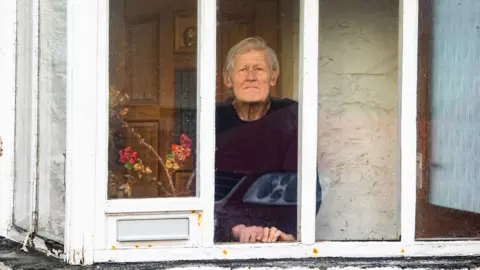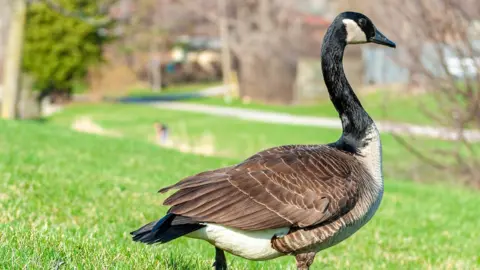Bird flu: Windsor swans culled as England outbreak spreads
 BBC
BBCTwenty-six swans have been culled in Berkshire as the avian influenza outbreak spreads across England.
The birds were being cared for at the Swan Lifeline rehabilitation centre on Cuckoo Weir Island in Windsor.
A 3km (1.9-mile) exclusion zone has been put in place around Eton to halt the spread of the disease.
It comes after several cases have been confirmed in birds across the country. A human case of the disease was also found in Devon.
Alan Gosling, 79, from Buckfastleigh, tested positive after his flock became infected.
He said he was "absolutely broken-hearted" when they had to be culled on New Year's Day.
'Extremely rare'
 SWNS
SWNSHealth officials said human cases were extremely rare and there was no evidence of onward transmission in this instance.
Three days ago, Birmingham City Council confirmed avian flu had been found in geese in some city parks.
While two outbreaks of avian flu have also been confirmed in Cheshire.
In Berkshire, dog walkers have been ordered to keep pets on a lead when walking along the River Thames in Windsor and Eton.
Residents have also been banned from feeding wild birds and local businesses have been told to stop selling bird food.
Swan Lifeline, which cares for sick and injured swans, said the H5N1 strain of avian flu was confirmed by the Department for Environment, Food & Rural Affairs (Defra) after a dead swan was found in Eton on 2 January.
The charity said: "Defra sent a team and a vet to humanely put to sleep the 26 swans we were still caring for since the outbreak.
"This action prevented the swans from the horrific and lethal effects of the virus and also protected other river wild fowl from potentially catching the virus."
The exclusion zone will be in place for at least three weeks and could be restarted for another 21 days if any more infected birds are discovered, according to the Local Democracy Reporting Service.
 Getty Images
Getty ImagesTown manager Paul Roach said the Royal Borough of Windsor and Maidenhead Council's trading standards team was leading the response to the outbreak and has been contacting rescue centres and birdkeepers.
He said: "The primary aim is to try and prevent birds from flocking together. I know what everybody is thinking, how do you keep swans socially distancing?
"There is no answer to that but that's what we're trying to do to make sure we're not encouraging them to come together."
The BBC has contacted Defra for comment and it is expected to make an official statement later.

Follow BBC South on Facebook, Twitter, or Instagram. Send your story ideas to [email protected].
